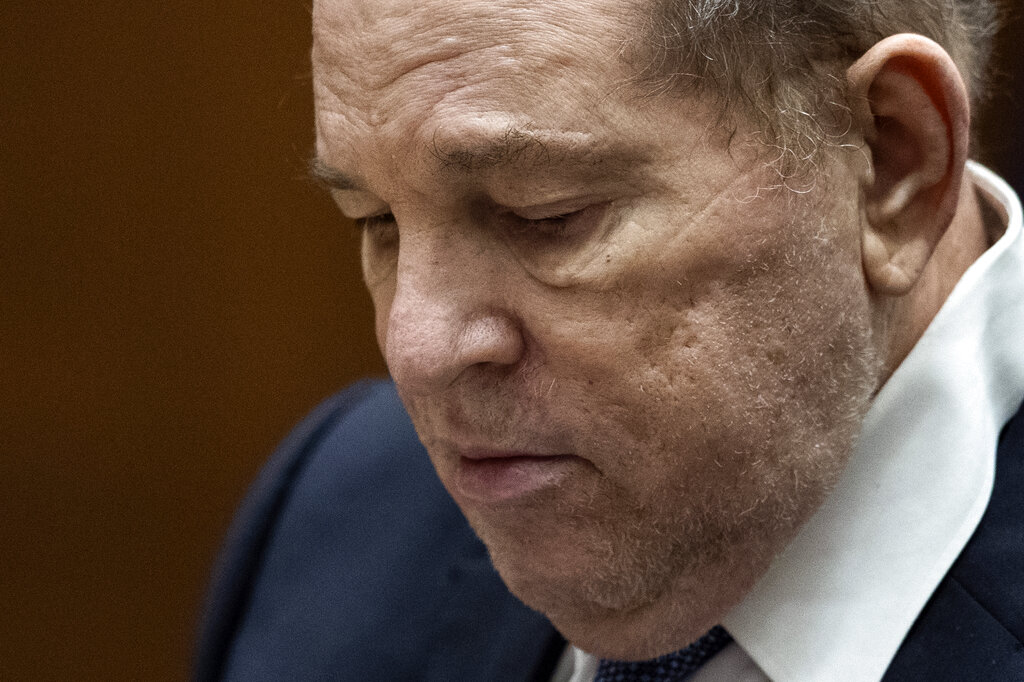
Harvey Weinstein’s accusers have weighed in on the New York Court of Appeals’s decision to overturn the disgraced film executive’s 2020 conviction on sexual assault charges.
His conviction four years ago marked a landmark in the #MeToo movement after more than 100 women accused Weinstein of sexual assault and harassment. His accusers shared their thoughts after the appeal’s court decision Thursday.

“This today is an act of institutional betrayal,” actor and activist Ashley Judd said. “Our institutions betray survivors of male sexual violence.”
Judd was one of the first women to accuse Weinstein of sexual harassment publicly.
One accuser, Ambra Battilana Gutierrez, said the decision represented an “ongoing failure of the justice system — and the courts — to take survivors seriously and to protect our interests.”
In 2015, Gutierrez filed a sexual abuse complaint against Weinstein to the New York Police Department. The following day, NYPD’s Special Victims Division set up a meeting between Gutierrez and Weinstein in which Gutierrez wore a recording device. During their talk, Weinstein admitted to touching her inappropriately and apologized.
New York prosecutors, however, did not deem that as enough evidence to be incriminating, and Gutierrez and Weinstein agreed to an undisclosed settlement.
Another woman, Dawn Dunning, said she was “stunned” when she heard the appeals court decision.
“Preparing for the trial took two years of my life. I had to relive the trauma of the assault every day. But since today’s ruling, people have asked me if I regret having testified,” Dunning said. “And my answer is a resounding, ‘No.’”
Attorneys Debra S. Katz and Lisa Banks, who represented accusers including Dunning, called on Manhattan District Attorney Alvin Bragg to retry the case. One accuser, Miriam “Mimi” Haley, said she would testify again in a new trial, according to her attorney, Gloria Allred.
“Even though the process of testifying was grueling and retraumatizing for Mimi, she reaffirmed to me today that she would consider testifying again if [Manhattan] District Attorney Alvin Bragg decided to proceed with a new trial of Harvey Weinstein,” Allred said.
Dunning remained firm that she had “nothing to gain” by coming forth with the original accusations but was proud of her decision to do so.
“I had nothing to gain and much to lose in terms of loss of privacy and the trauma that comes with confronting one’s abuser in court. I am a stronger person for having done so, and I know that other women found strength and courage because I and other Weinstein survivors confronted him publicly. The culture has changed, and I am confident that there is no going back,” Dunning said.
CLICK HERE TO READ MORE FROM THE WASHINGTON EXAMINER
In 2020, Weinstein was sentenced to 23 years in prison on first-degree criminal sexual act and third-degree rape charges. He was found guilty in a separate case in California for sexual assault charges and was sentenced to 16 years in prison.
On Thursday, the appeals court ruled 4-3 that the judge had made “egregious errors” with how the trial was conducted, specifically testimony that was allowed in the trial.






